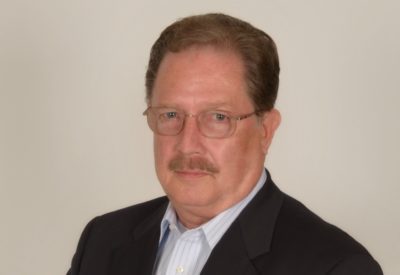His contributions advance the knowledge of space
With his feet planted firmly on the ground, William R. Ward, Ph.D., looked up at the stars and saw potential. Ward graduated from UMKC in 1968 with dual degrees in physics and mathematics from the College of Arts & Sciences with the goal of becoming a planetary scientist.
But, he didn’t initially come to UMKC with this direction in mind. In fact, he began his studies with the intention of studying business.
Thanks to a Foundations of Physical Sciences course taught by Professor Norman Royall, the professor for whom Royall Hall was named, Ward was inspired to change his major.
“I realized that a research career in physics and mathematics would be fascinating and a good match with my strengths,” he says. “Plus, the space program was just getting underway, and the outlook for a career in this area was promising.”
After completing his degrees at UMKC, Ward went on to California Technical Institute to earn his doctorate in planetary sciences. After graduating, he went on to work at NASA’s Jet Propulsion Laboratory. Ward currently works at the Institute Scientist at Southwest Research Institute in Boulder, Colo. He will be honored this April by the campus and the UMKC Alumni Association with the College of Arts & Sciences Alumni Achievement Award.
Over the course of his career, Ward has introduced several new ideas that have shaped his field, the knowledge of its scientists and assisted people in understanding the universe better. He has studied the formation of the earth’s moon and, along with other scientists, helped formulate the widely accepted ‘giant impact theory.’ He has also focused on swings in Mars’ polar axis, believed to create variations in that planet’s climate.
Another leading idea attributed to Ward is that of ‘migration.’ Much of his research has focused on understanding the interactions between newly formed planets with the circumstellar disks of gas and solid material from which they originate. Although such disks eventually dissipate, during their lifetime, they exert enormous forces on any embedded planet, modifying its orbit. As a result, large planets can be quite mobile, and Ward predicts that many may ‘migrate’ inward close to their star.
Ward has traveled all over the world giving lectures, presenting at seminars and attending conferences.
“It has been my foremost goal to advance our knowledge and understanding of the origins of the Earth and our solar system. I have always considered this a noble mission, and it has also proved to be a wonderful and exciting profession,” he says.
Ward has received numerous honors and awards for work in his field including lifetime achievement awards from both the Division of Dynamical Astronomy (Brouwer Award, 2006) and the Division of Planetary Sciences of the American Astronomical Society (Kuiper Prize, 2011).
“The desire to significantly contribute to the field of planetary sciences has always been my primary driver. Over the course of my career, I have been privileged to introduce several new ideas and concepts that have become incorporated into the current state of knowledge and employed by the community as a whole,” he says.
Ward will be honored with his fellow 2015 Alumni Awardees on April 23 at Swinney Recreation Center. The luncheon is one of the university’s largest events and proceeds support student scholarships. Last year’s luncheon attracted nearly 600 attendees and garnered more than $117,000 in student scholarships.

